Divinity: Original Sin 2 beginner's guide
Tips to make the first 20 hours go smoothly.
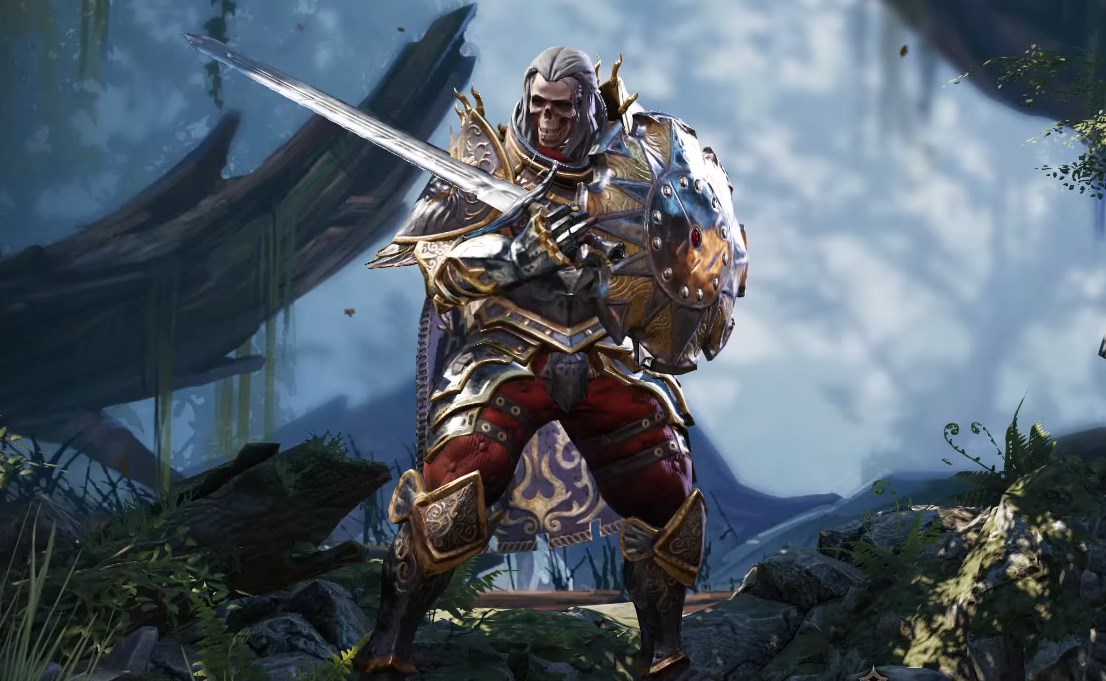
Divinity: Original Sin 2's complexity can be daunting at first, and not everything is explained in detail. The good news is that a lot of early decisions can be taken back—you'll have a chance to respec later in the game—but just getting through the first few fights can be rough, even on Classic mode. To settle your nerves, we've compiled a few tips to help ensure you're set to adventure by the time you leave Fort Joy. (Speaking of, here's our walkthrough of all the ways in and out of Fort Joy, if you need extra guidance.)
Minor spoilers ahead for the first several hours, of course. These tips were last updated on September 29.
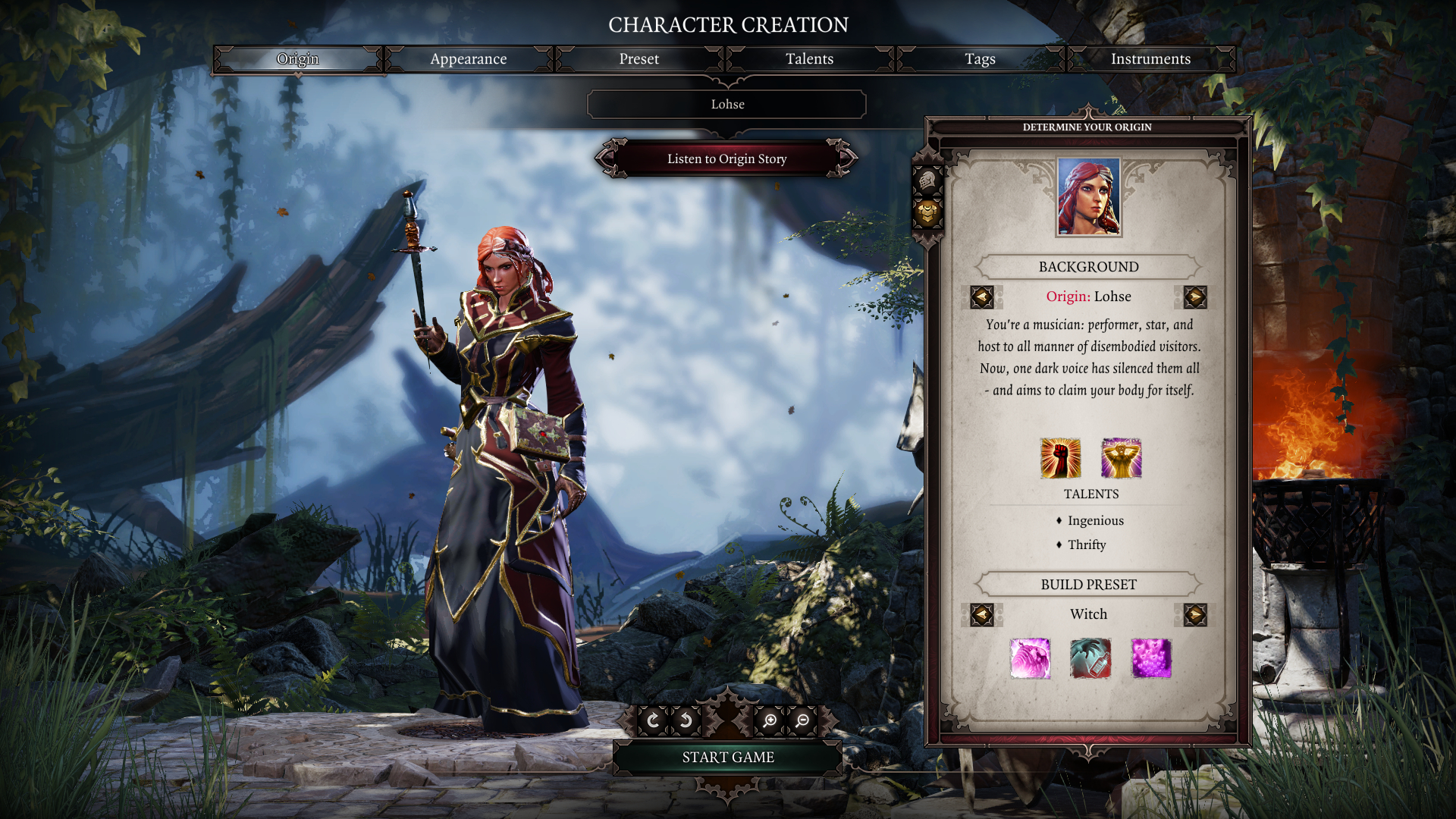
Pick an origin character
Original Sin 2’s robust character creator lets you cook up all manner of heroes and weirdos, but for the richest experience you’ll absolutely want to choose one of the origin characters. They are just as customisable as any other character you might make, but come with an origin story, extra voice acting and their own personal quests. The ones you don’t choose then become companions who can join you.
That said, don't fret too much if you prefer to play as a character of your own. You can initiate dialogue with non-party NPCs using any of your party members, meaning you'll have chances to experience some of their unique dialogue options if you want. It isn't quite the same, but you'll be able to follow their stories either way, and you'll pick up new character tags throughout your adventures that give your custom character a bit of unique personality.
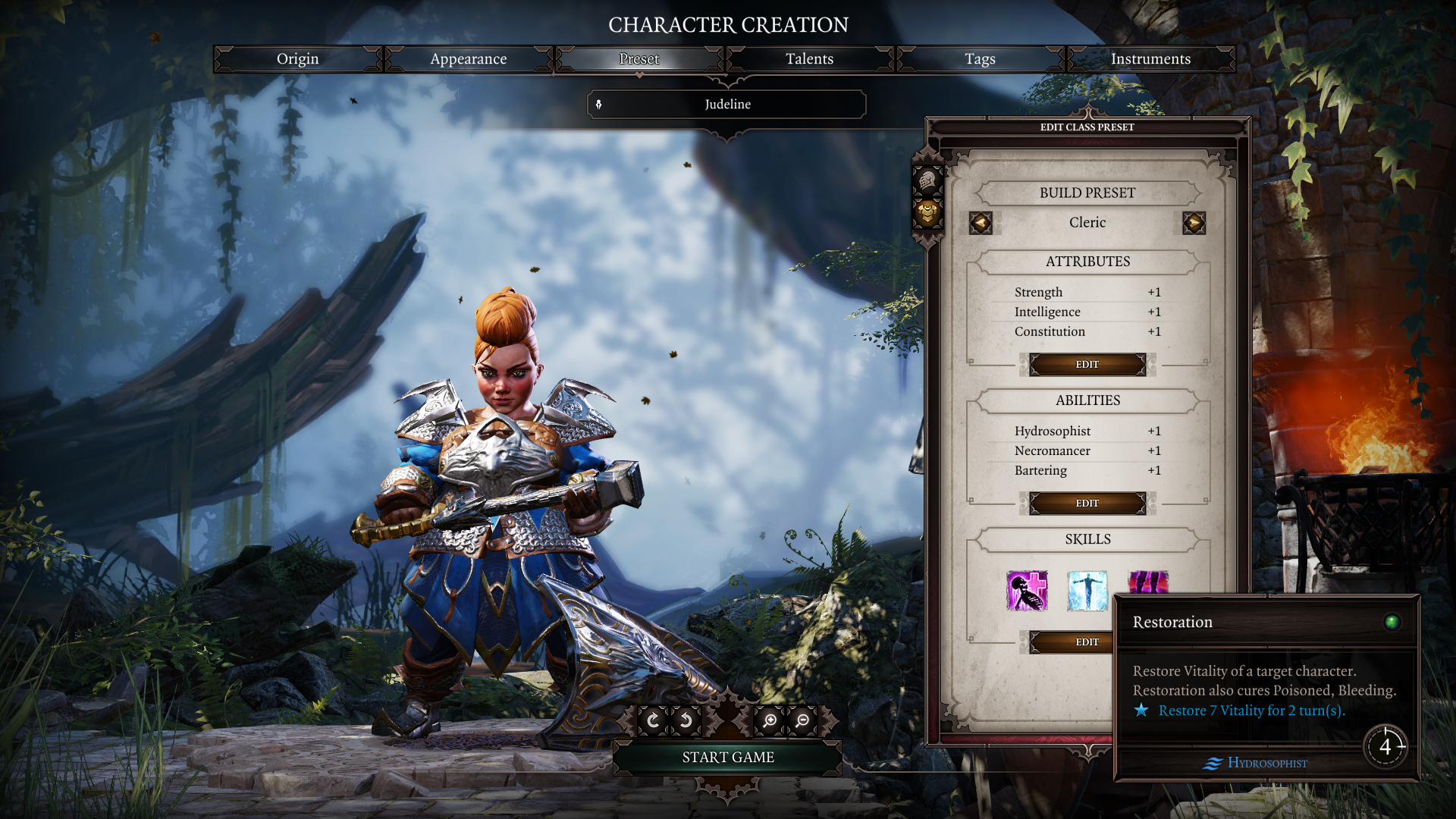
Get a healer in your party
When you recruit new party members, you have the option to assign them different class presets than their defaults. If your character doesn't have any healing abilities, it's a good idea to request that one of them take the role of Cleric. Money is tight in the early game, so relying on potions to heal will make it tough to afford new armor and weapons.
Original Sin 2's class system is very flexible, so don't worry if you'd prefer your chosen healer be something else down the line. As a Cleric they'll get points in Hydrosophist and Necromancer, both of which support lots of cool, non-healing related spells. And you can completely change their specialization down the line and, say, build them into a rogue if you want.
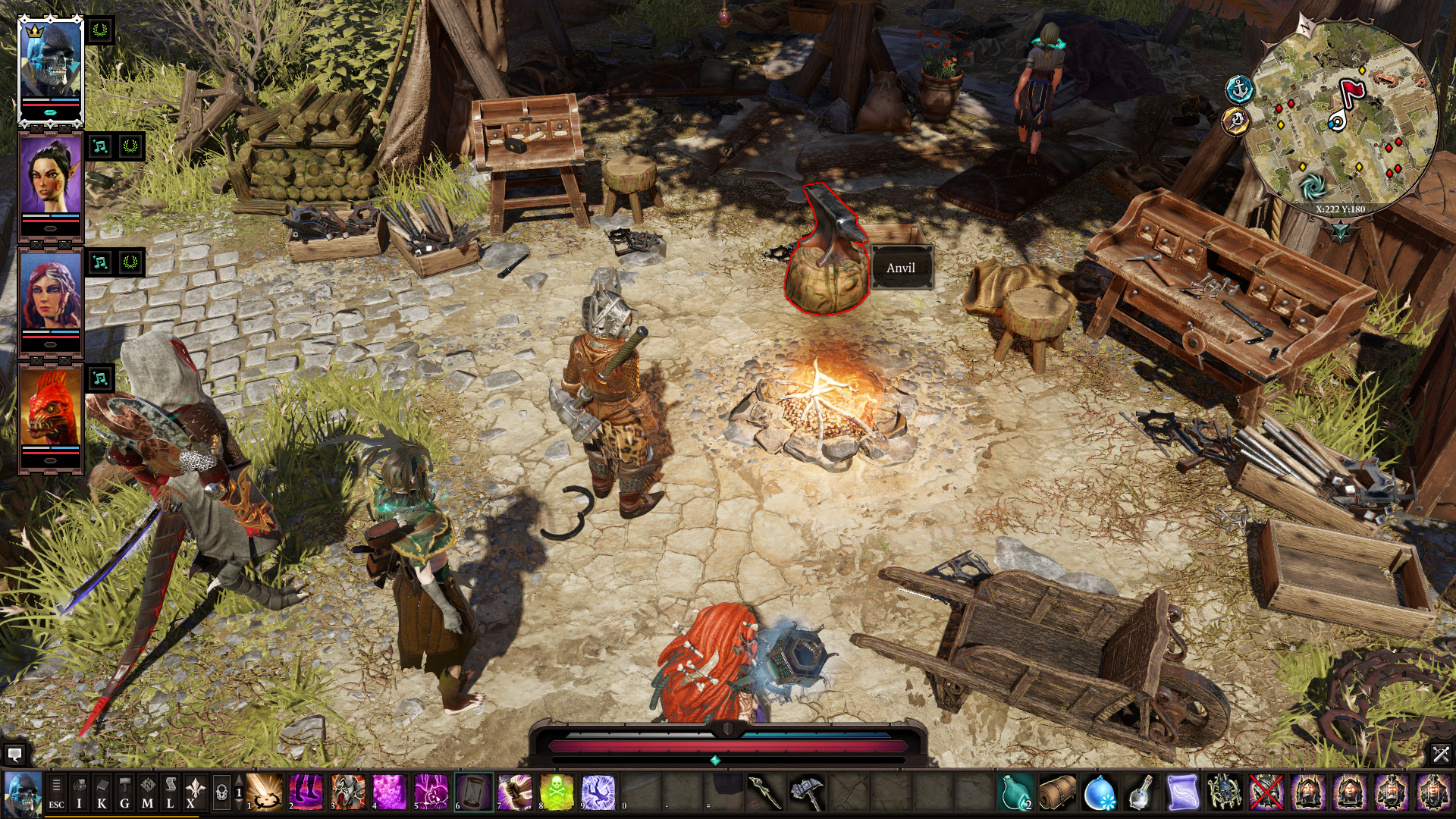
How to earn money and gear up
First of all, click on everything. You never know who or what is important in Original Sin 2 at first glance. Every NPC could be a potential quest-giver, holder of important knowledge, or maybe they just have some hilarious jokes they’re waiting to rattle off. And a random piece of tat you find on the beach or in an otherwise empty barrel could be the key to solving a mystery, or maybe it’s just worth a few quid to the right buyer (but think carefully before selling items that might be quest-related). If it isn't red, you can snag it without being attacked for stealing. Essentially, you’ll want to treat it like an adventure game.
The biggest gaming news, reviews and hardware deals
Keep up to date with the most important stories and the best deals, as picked by the PC Gamer team.
Also, remember to complete your quests. Even a simple thing, like talking down a few thugs, can result in earning experience, gold, and items—but you have to go talk to the quest giver to get your reward. Check your journal to see if you have any outstanding quests to complete.
All that said, money is going to be tight for a while. Quality armor and weapons are hard to come by in the early game. To help a little, check to see who in your party has the highest Bartering level, and make sure they cozy up to traders and get on their good side—even saving 20 gold here and there is worth it.
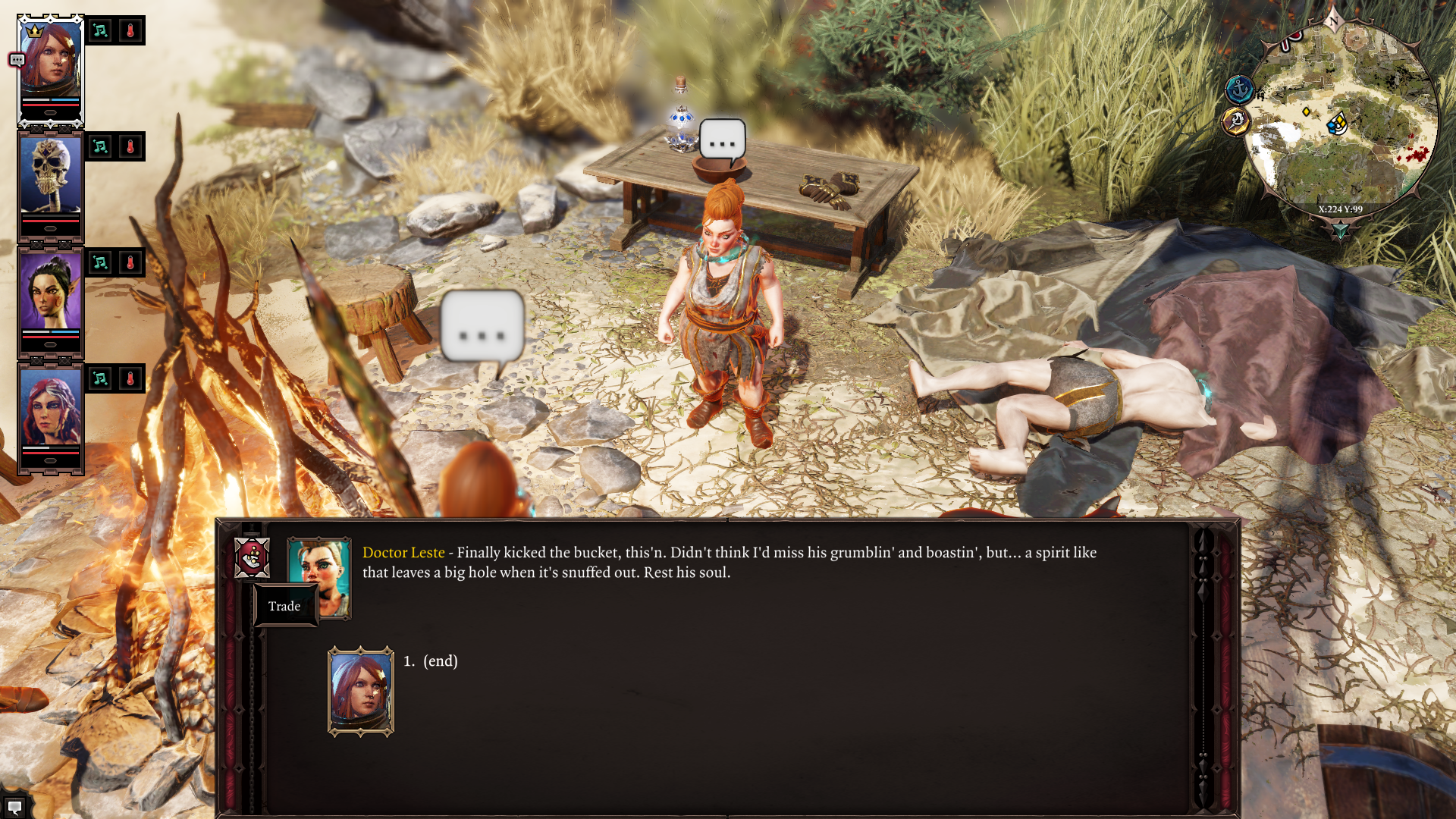
You can trade with many NPCs even if they don't offer
If an NPC is marked as a 'trader,' you won't always be able to get to the trade screen through dialogue. Even if you're on good terms and you've spent gold with them before, they'll sometimes get stuck repeating one line of dialogue, or just stop offering, which can be frustrating if you haven't yet noticed the easy-to-miss button on the upper left side of the dialogue box (see the screenshot above). Click it to open the trade screen.
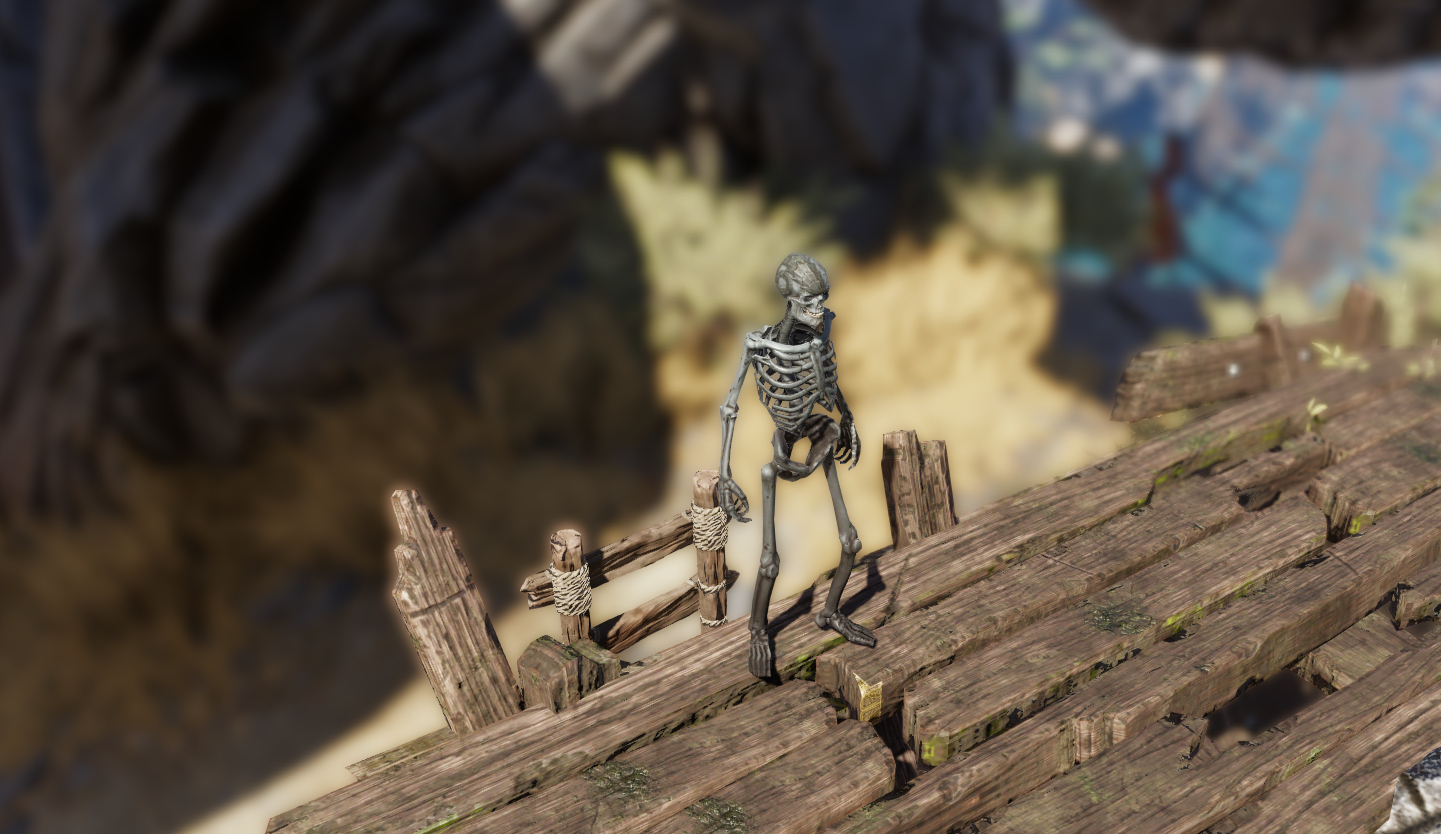
Save money on lockpicks, get a skeleton
If you’re not going to play as Fane, the Undead origin character, then you should at least bring him as a companion. He’s excellent company, being the source of a lot of biting sarcasm and camp, pantomime menace, and his boney digits are unexpectedly handy. Fane, and indeed any Undead character, is a walking skeleton key, able to use their fingers to unlock doors and chests, as long as they have the appropriate skill level.
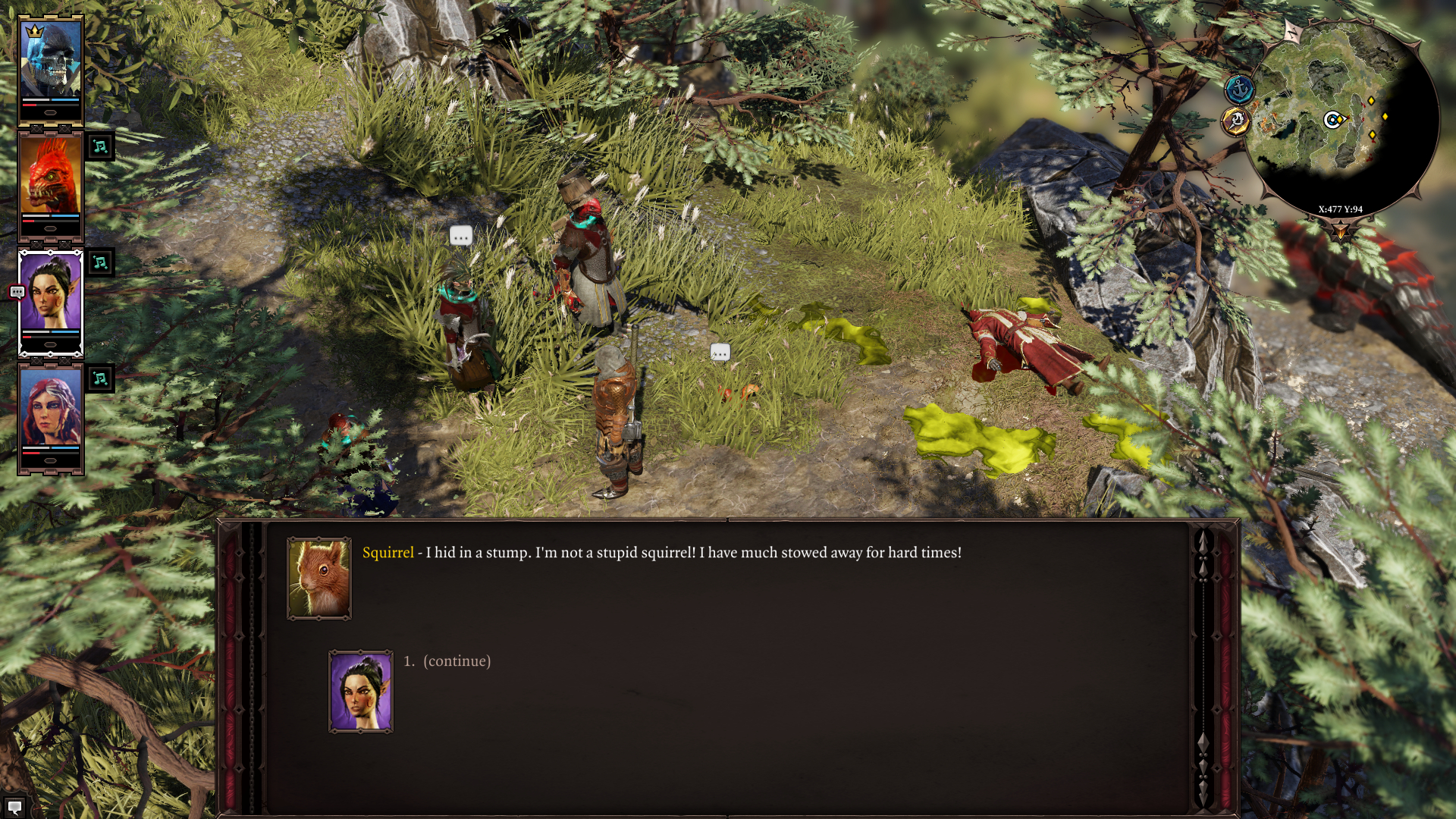
Get the Pet Pal talent
If you’ve got the Pet Pal talent (or someone in your party does) you can talk to animals, and it’s not just for laughs—animals frequently offer advice, spill secrets and occasionally give out quests. These conversations are also the source of many great character moments. Anyone can get the Pet Pal talent, and you can also choose it during character creation. If you recruit The Red Prince, he has it by default.
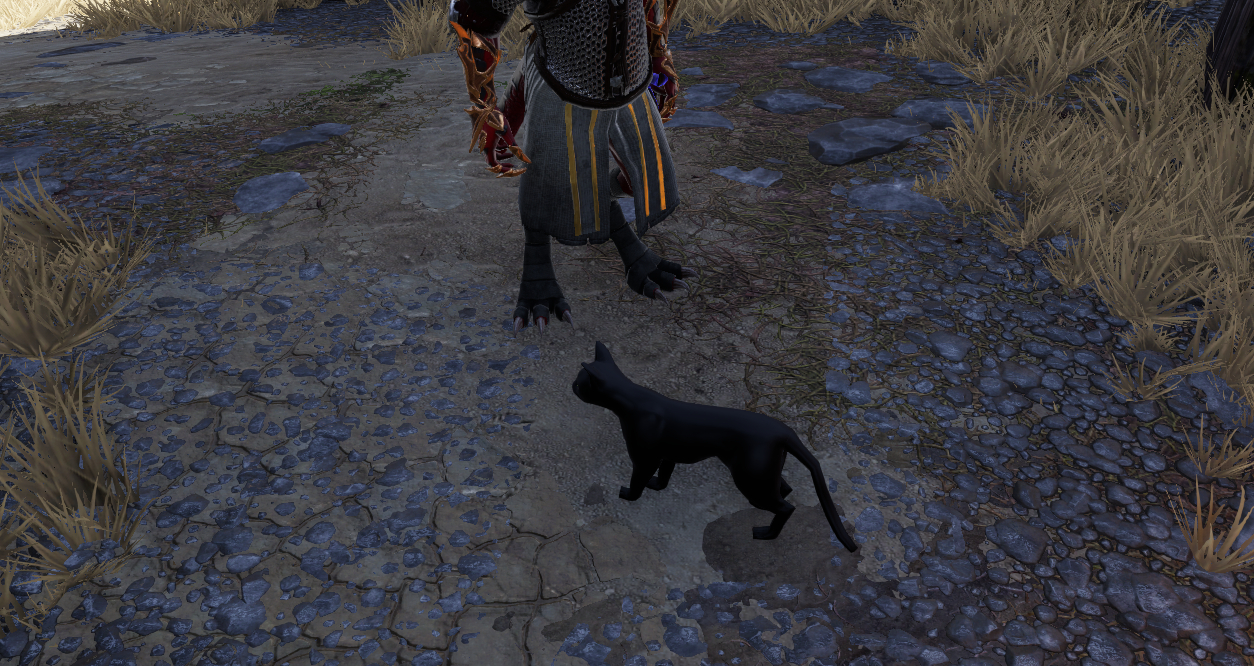
Protect the black cat
Speaking of animals, early on you’ll find yourself followed by a black cat. He can’t be harmed in combat, but if you walk past the guards in front of the gate to Fort Joy Prison, east of the camp, one of the archers will murder the innocent kitty. Keep him alive, however, and when you escape the camp, he’ll join the party as a summon, allowing you to switch places with him in battle.
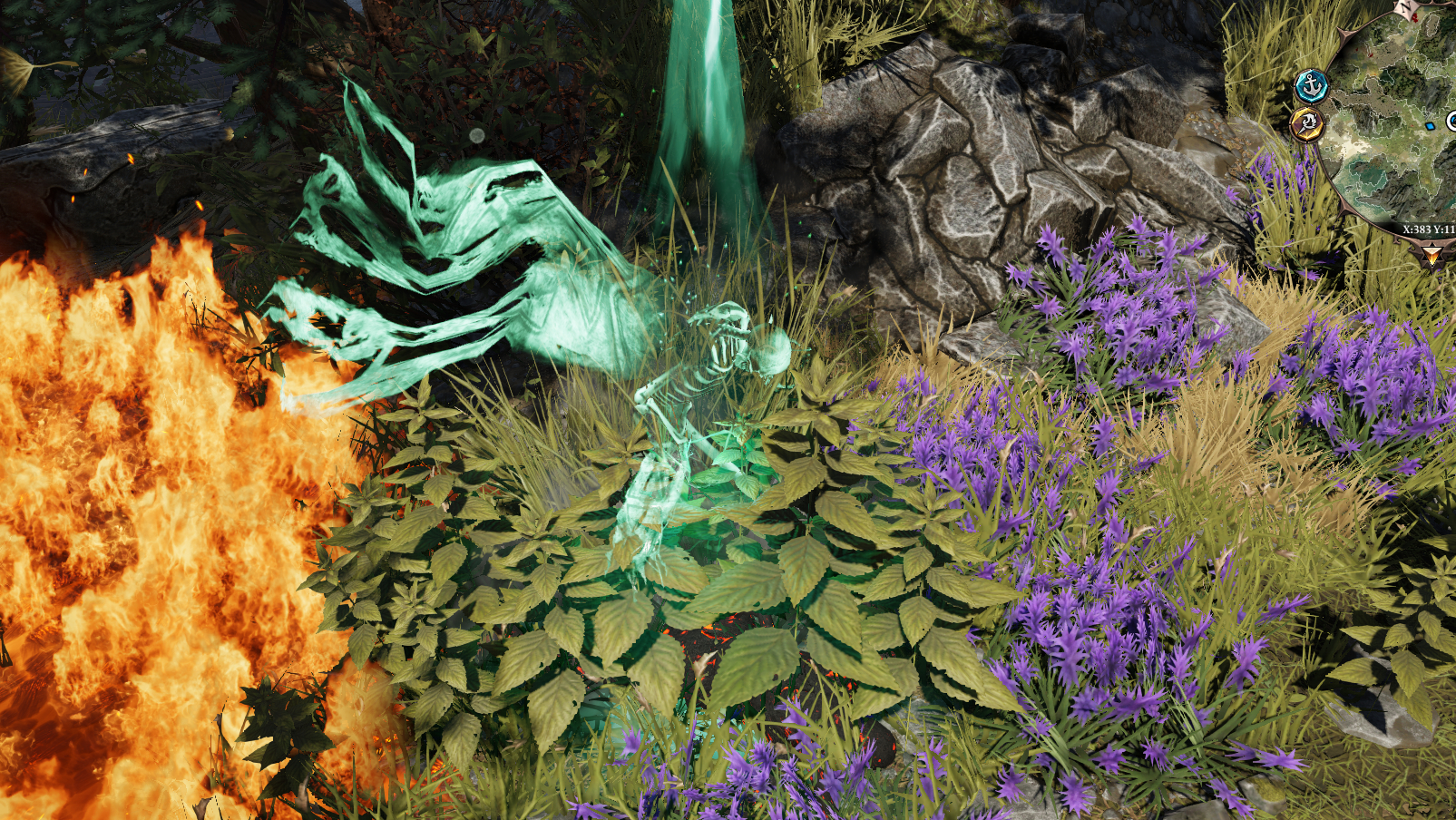
Make liberal use of quicksave
Divinity: Original Sin 2 is hard. Even on the default Classic Mode, battles are brutal, and in the first act you’ll often find your squishy party a bit underprepared. Resurrection scrolls are also incredibly pricey, though you can occasionally loot them. This isn’t helped by an autosave feature that kicks in when a battle begins, not before, so you won’t be able to prepare any better. So whenever you think you’re about to duke it out, hit that quicksave button.
It's also a good idea to quicksave before entering a new area, or initiating any major quest dialogue. Unless you're going for a one life, no take-backsies game (in which case we salute you), you'll find that what you say and do can have big consequences that you may want to take back.
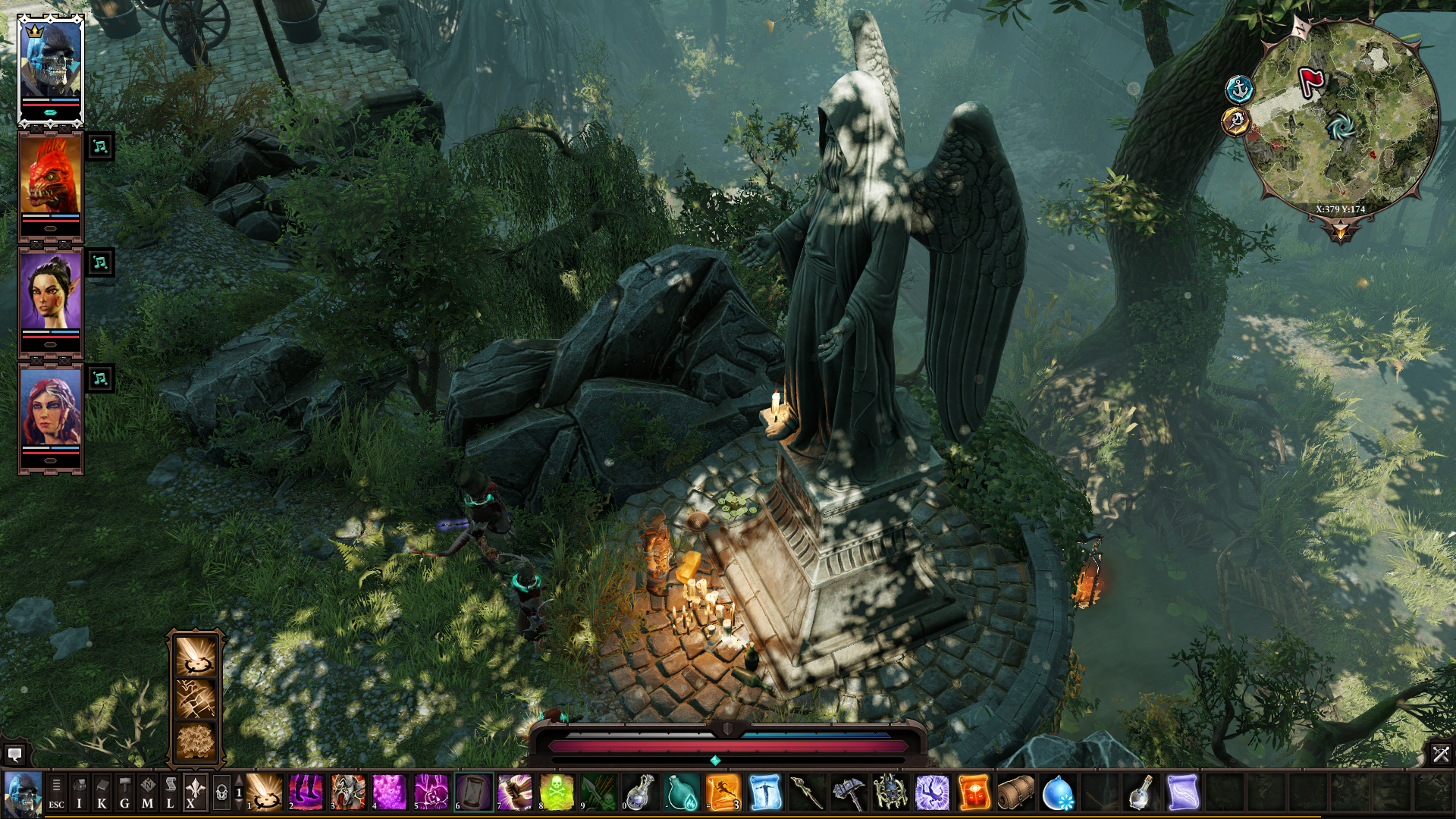
Retreating is fine
Alternatively, and especially if you're avoiding save scumming, you can always flee. Once a character is out of range of the enemy, you can click flee, and they’ll respawn at the nearest waypoint. In the middle of a battle, it can be tricky to get far enough away from foes, so it’s worth investing in tricks that make escape easier. Teleportation, flight and the Tactical Retreat ability are all boons when you just need to get the hell out of there.
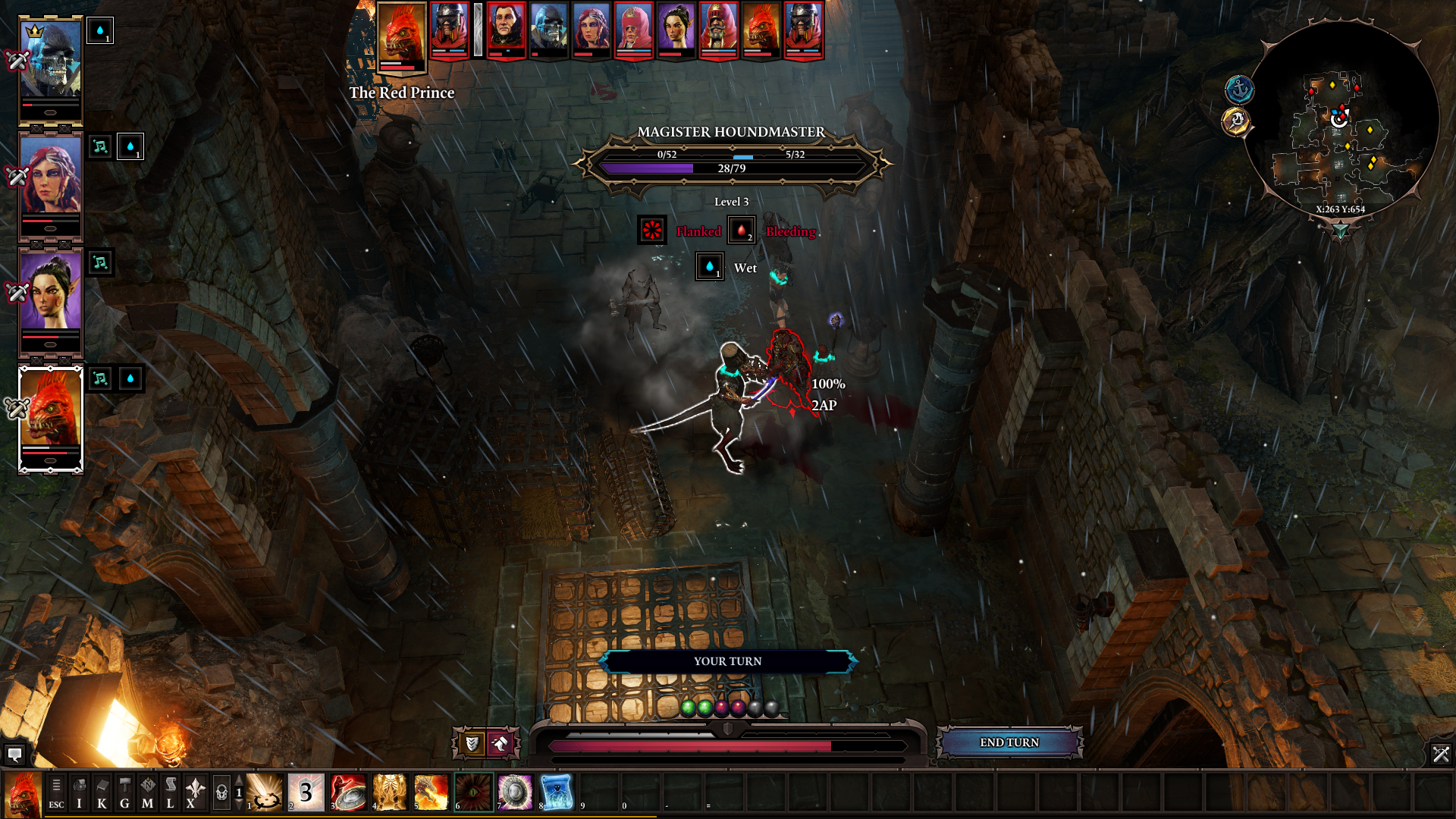
Environmental effects are handy and deadly
Fights are often won by the group best able to manipulate the environment with magic and elemental weapons. Cast rain on a group of enemies, and then a spell that applies chill, and you might end up with frozen enemies and slippery surfaces. These environmental effects make great traps—and also obstacles—but they can help you as well as hindering enemies. A Necromancer, for instance, can make it rain blood and then cast a healing spell that soaks up all of the puddles to increase their vitality.
And don't forget: undead characters heal from poison. Be careful not to accidentally do them any favors (unless it's Fane) by leaving poison puddles around. You can use healing abilities on them to do damage, too.
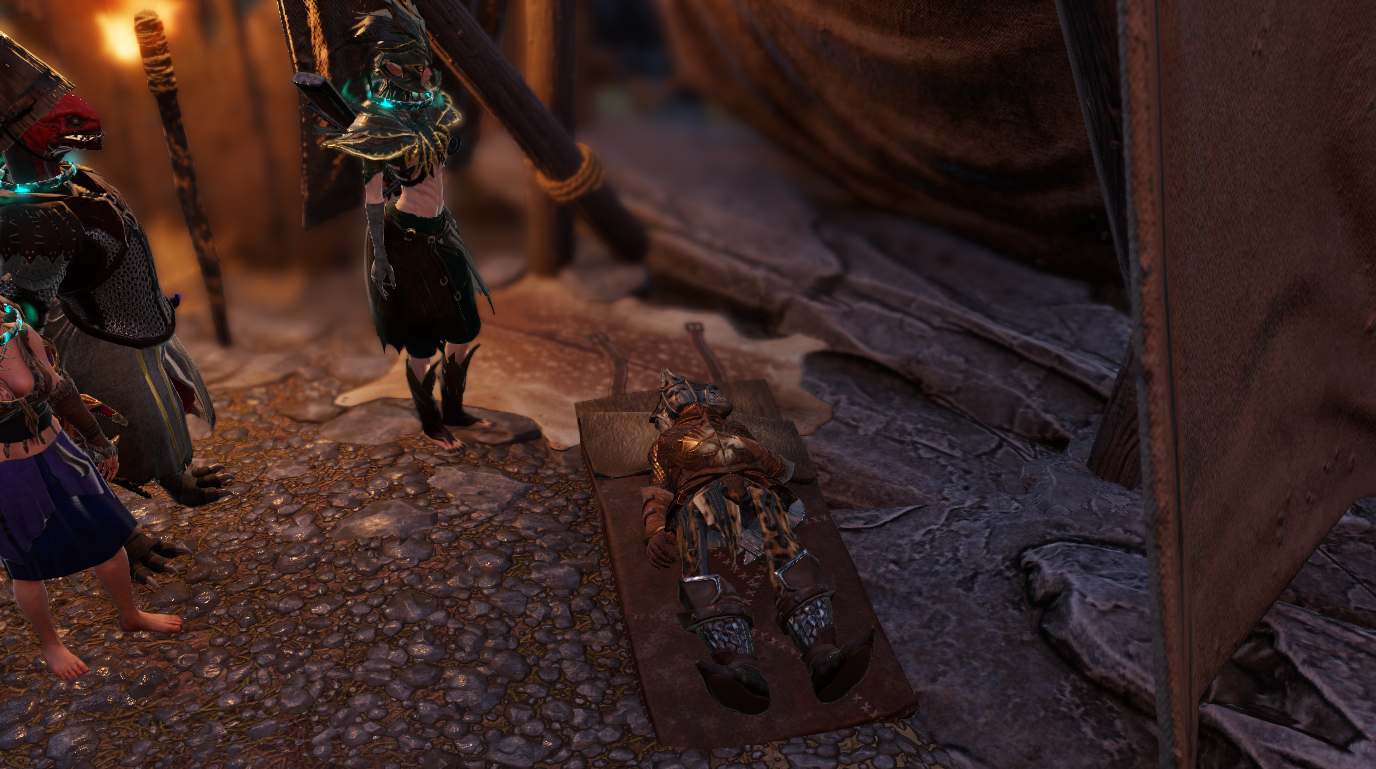
Grab a bedroll as soon as possible
While healing potions and spells are important when you’re in a fight, the best way to heal outside of battle is by taking a quick nap. That’s only possible if there’s a bed nearby, however, and you won’t find many of them out in the wilderness. That’s why it’s so important to pick up the first bedroll you encounter. You’ll be able to take it with you everywhere, and clicking on it heals every character almost instantly. You'll find one in the first beach area near the entrance to Fort Joy, on top of a ruined wall. There's a shovel there, too. You should grab the shovel.
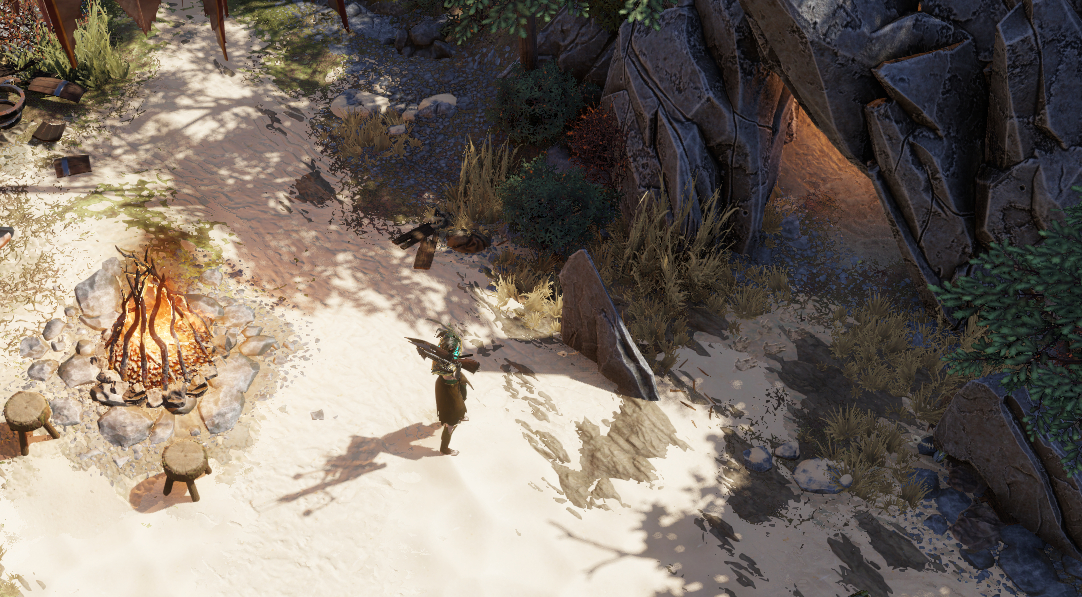
Don’t forget to rotate the camera
It seems so obvious, but it’s easy to forget that you can rotate the camera to get a clearer picture of the area you’re marching through. Often, the angle can hide entrances, caves, chests and secret paths that become clear when you change your perspective. I spent about 30 minutes looking for a cave, only to discover that I’d passed it a dozen times, but until I changed the camera, I only saw the hill behind it. It's not a bad idea to have a character with high Wits, either, as they'll call out secrets when they see them.
Divinity: Original Sin 2 is so expansive and elaborate that even with this list, there’s going to be a lot for you to learn, but the most important lesson is just to experiment. That might mean using the teleportation spell creatively to loot corpses that are out of reach, for instance. If it seems like you can do something, there's a good chance you can, so you may as well try.

Fraser is the UK online editor and has actually met The Internet in person. With over a decade of experience, he's been around the block a few times, serving as a freelancer, news editor and prolific reviewer. Strategy games have been a 30-year-long obsession, from tiny RTSs to sprawling political sims, and he never turns down the chance to rave about Total War or Crusader Kings. He's also been known to set up shop in the latest MMO and likes to wind down with an endlessly deep, systemic RPG. These days, when he's not editing, he can usually be found writing features that are 1,000 words too long or talking about his dog.

